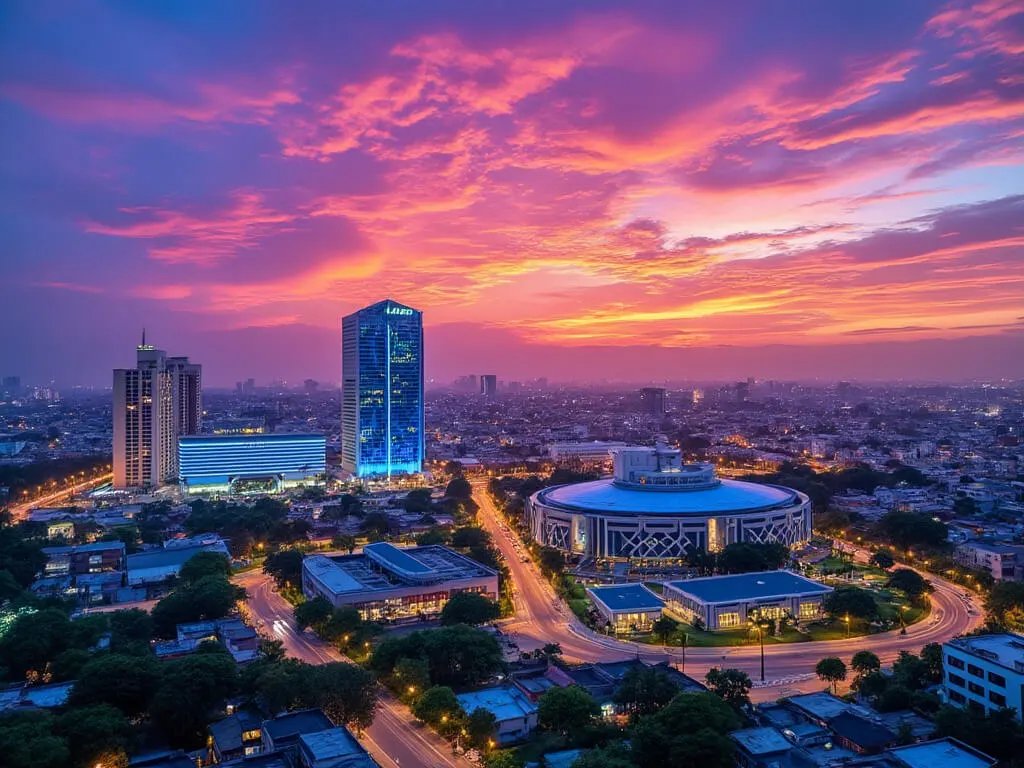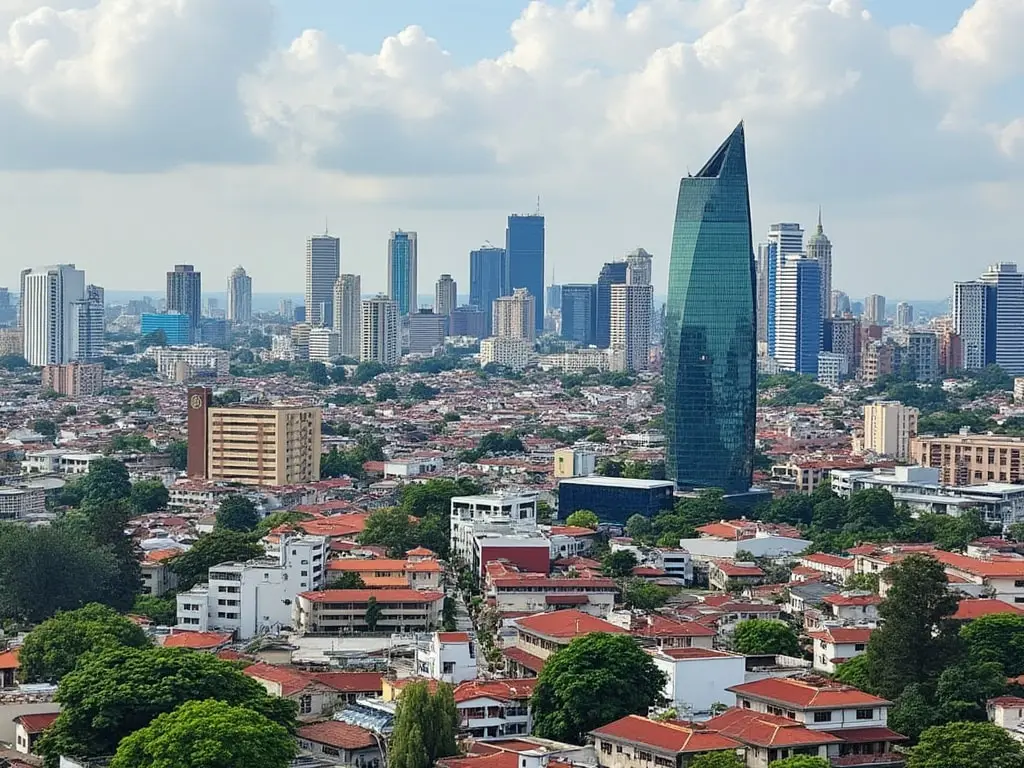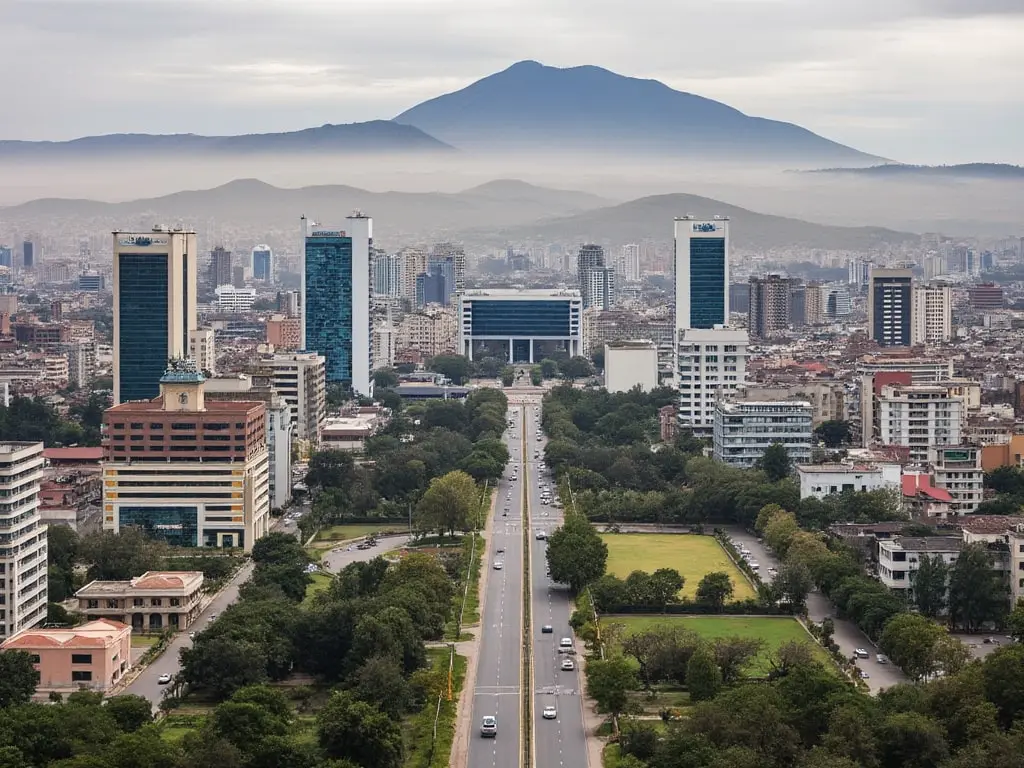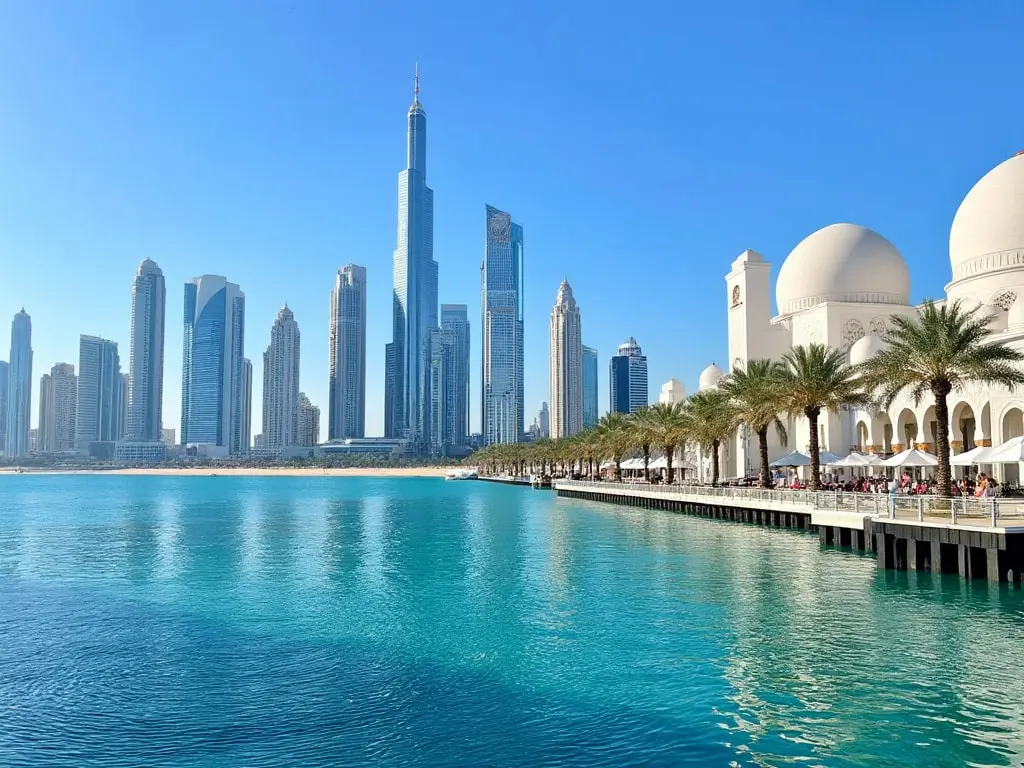
Abuja, the capital city of Nigeria, is a city like no other. Located in the heart of the country, Abuja is a melting pot of cultures, traditions, and modernity. From its rich history to its vibrant cultural scene, Abuja is a city that has something to offer for everyone.
Abuja information
| Country | 🇳🇬 Nigeria |
| City Population | 3,200,000 (2020 estimate) |
| City Coordinates | 9.0574° N, 7.4898° E |
| City Area | 713 km² (275.7 sq mi) |
| Climate | Tropical savanna climate (Köppen climate classification Aw) |
| Language | English (official), Hausa, Yoruba, Igbo |
| Currency | Nigerian naira (₦) |
| Time zone | West Africa Time (WAT) (UTC+1) |
| Proximity to other major cities | Lagos (540 km / 335 mi), Kano (430 km / 267 mi), Ibadan (610 km / 379 mi) |
Interesting facts about Abuja
- Abuja is home to the largest mosque in West Africa, the Abuja National Mosque.
- The city has a population of over 3 million people, making it one of the fastest-growing cities in Africa.
- Abuja is home to many international organizations, including the Economic Community of West African States (ECOWAS) and the African Development Bank.
Tourist attractions in Abuja
- The National Museum: a museum that showcases the history and culture of Nigeria.
- The National Assembly: the seat of the Nigerian government.
- The Abuja National Mosque: one of the largest mosques in West Africa.
- The Millennium Park: a large public park that offers stunning views of the city.
Historical background of Abuja
Abuja was founded in 1982 as the new capital city of Nigeria, replacing Lagos as the country's capital. The city was designed by Japanese architect Kenzo Tange and was built from scratch in the 1980s. The city's name is derived from the Hausa language, with "Abuja" meaning "friend" or " companion".
Geographical location of Abuja
Abuja is located in the Federal Capital Territory (FCT) of Nigeria, which is a separate entity from the country's 36 states. The city is situated in the north-central part of the country, approximately 800 km (500 mi) from the coast. Abuja is nestled in the savanna region, with a terrain that is characterized by rolling hills and vast plains.
Cultural significance of Abuja
Abuja is a city that is deeply rooted in Nigerian culture and tradition. The city is home to many cultural institutions, including the National Museum, the National Gallery of Art, and the Abuja National Mosque. The city also hosts many cultural festivals throughout the year, including the Abuja International Film Festival and the National Festival of Arts and Culture.
Economic importance of Abuja
Abuja is the economic hub of Nigeria, with many multinational corporations and government agencies having their headquarters in the city. The city is also home to many markets, including the famous Wuse Market, which is one of the largest markets in West Africa.
Conclusion on Abuja
In conclusion, Abuja is a city that is full of life, energy, and culture. From its rich history to its vibrant cultural scene, Abuja is a city that has something to offer for everyone. Whether you are a history buff, a culture vulture, or simply looking for a new adventure, Abuja is a city that is definitely worth visiting.
 Accra
Accra
 Addis Ababa
Addis Ababa
 Abu Dhabi
Abu Dhabi